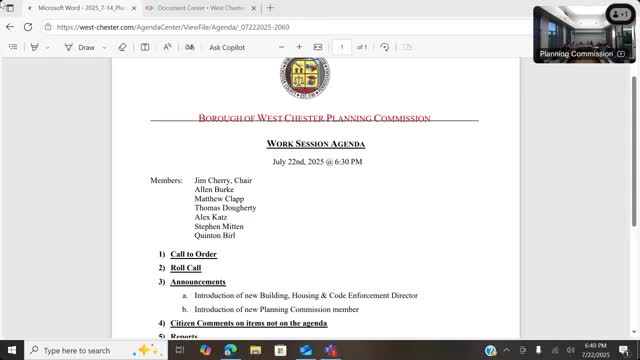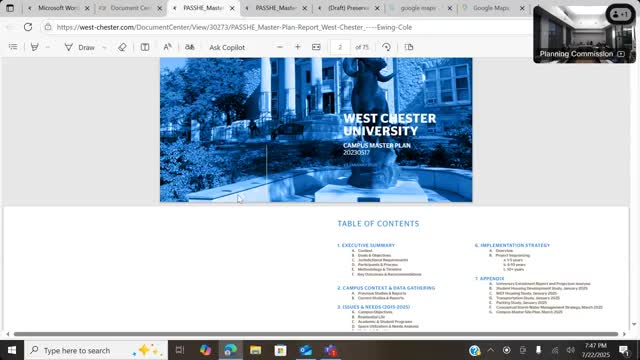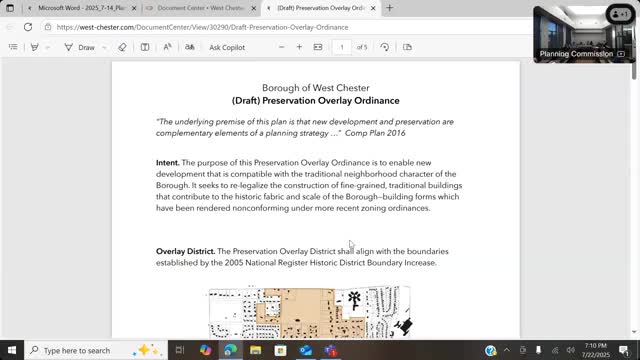Article not found
This article is no longer available. But don't worry—we've gathered other articles that discuss the same topic.

Westchester planning commission reopens debate on build-to setbacks and recreation-space rules

Developers, planners discuss lot division, impervious coverage and overhangs at 210–214 West Washington

Planning commission to review Westchester University master plan; commission reserves formal comment until presentation and public workshops

Planning commission reviews draft preservation overlay to allow traditional small-scale infill

